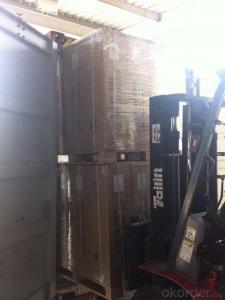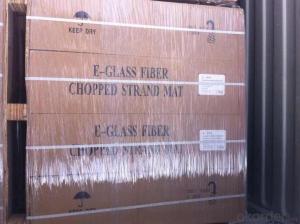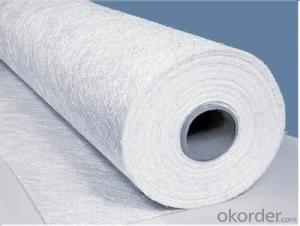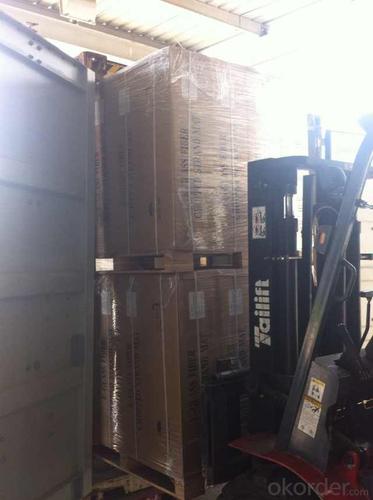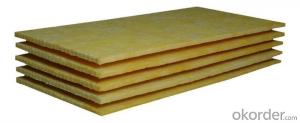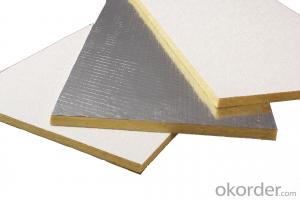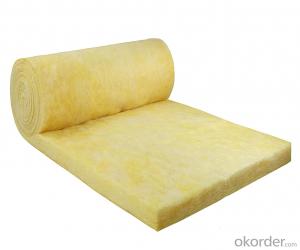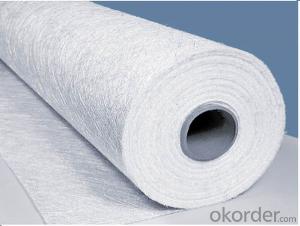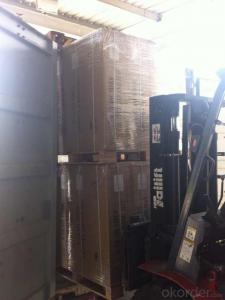Fiberglass Mat Tissue E Glass Chopped Strand Mat Emulsion Bonded
- Loading Port:
- China Main Port
- Payment Terms:
- TT or LC
- Min Order Qty:
- 10000 kg
- Supply Capability:
- 200000kg Per Month kg/month
OKorder Service Pledge
OKorder Financial Service
You Might Also Like
1.Brief Introduction E Glass Emulsion Chopped Strand Mat is made of randomly distributed chopped strands held tighter by a emulsion binder. It is compatible with UP, VE, EP resins. Property Area Weight Moisture Content Size Content Breakage Strength Width (%) (%) (%) (N) (mm) Mathods IS03374 ISO3344 ISO1887 ISO3342 EMC80E ±7.5 ≤0.20 8-12 ≥40 50-3300 EMC100E ≥40 EMC120E ≥50 EMC150E 4-8 ≥50 EMC180E ≥60 EMC200E ≥60 EMC225E ≥60 EMC300E 3-4 ≥90 EMC450E ≥120 EMC600E ≥150 EMC900E ≥200 Special specification can be produce according to customer requirements 4.FAQ
It is compatible with UP, VE, EP, PF resins.
The roll width ranges from 50mm to 3300mm.
Additional demands on wet-out and decomposition time may be available upon request.
It is designed for use in hand lay-up, filament winding, compression molding and continuous laminating processes. Its end-use applications include boats, bath equipment, automotive parts, chemical corrosion resistant pipes, tanks, cooling towers and building components
2.Product Features
Fast breakdown in styrene
High tensile strength, allowing for use in hand lay-up process to produce large-area parts
Good wet-through and fast wet-out in resins, rapid air lease
Superior acid corrosion resistance
3.Product Specifications 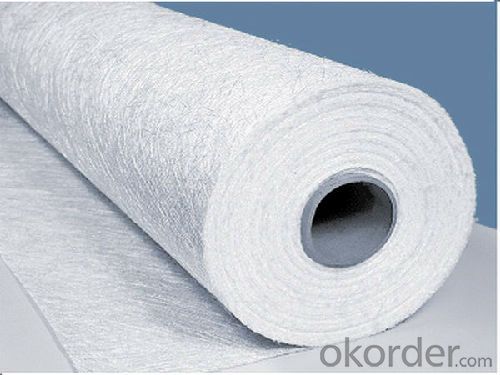
Packaging:
Each Chopped Strand Mat is wound onto a paper tube which has an inside diameter of 76mm and the mat roll has a diameter of 275mm. The mat roll is wrapped up with plastic film,and then packed in a cardboard box or wrapped up with kraft paper. The rolls can be vertically or horizontally placed. For transportation, the rolls can be loaded into a cantainer directly or on pallets.
- Q: How thick is fiberglass mat tissue typically?
- Fiberglass mat tissue, which is sometimes referred to as fiberglass mat or simply mat, is available in different thicknesses depending on its intended purpose. It can be as thin as 0.5 millimeters (mm) or as thick as 3 mm. However, the thicknesses most commonly used for fiberglass mat tissue are 1.5 mm and 2 mm. These thicknesses are well-suited for reinforcing laminates, composite materials, and creating surface finishes. It should be noted that the actual thickness of fiberglass mat tissue may vary depending on the manufacturer and the specific project requirements.
- Q: Can fiberglass mat tissue be used for boat building?
- Yes, fiberglass mat tissue can be used for boat building. Fiberglass mat tissue is a lightweight and versatile material that is commonly used in the construction of boats. It is made up of thin strands of fiberglass woven together to form a mat-like structure. This material is known for its high strength-to-weight ratio, making it an ideal choice for boat builders. Fiberglass mat tissue is often used in boat building to reinforce the structure and provide added strength. It can be applied to the hull, deck, or other parts of the boat to enhance its durability and resistance to impact. Additionally, it can be used to create a smooth and even surface, which is important for achieving a professional finish. One of the advantages of using fiberglass mat tissue in boat building is its ease of application. It can be easily cut to size and molded to fit the desired shape, allowing for flexibility and customization. It can also be easily layered with other materials, such as epoxy resin, to create a strong and reliable composite. Furthermore, fiberglass mat tissue is highly resistant to water and corrosion, making it suitable for marine environments. It is also known for its excellent thermal and electrical insulation properties, which are beneficial for boat builders. In conclusion, fiberglass mat tissue can indeed be used for boat building. Its lightweight, high strength, and resistance to water and corrosion make it a reliable and popular choice among boat builders.
- Q: Can fiberglass mat tissue be used for insulation in chemical storage tanks?
- Yes, fiberglass mat tissue can be used for insulation in chemical storage tanks. Fiberglass is known for its excellent insulation properties, making it a suitable material for insulating tanks that store chemicals. The fiberglass mat tissue is typically made from fine glass fibers that are woven together to create a strong and durable material. This mat tissue can be applied to the inner walls of the tank to provide insulation and prevent heat transfer. Additionally, fiberglass is corrosion-resistant and can withstand the harsh chemicals often stored in these tanks, making it an ideal choice for insulation in chemical storage tanks.
- Q: Can fiberglass mat tissue be used for making lightweight ceilings?
- Yes, fiberglass mat tissue can be used for making lightweight ceilings. Fiberglass mat tissue is a thin and lightweight material made from fiberglass strands that are bonded together with a binder. It is commonly used in construction and building applications due to its excellent strength-to-weight ratio. When used for making lightweight ceilings, fiberglass mat tissue can provide several advantages. Firstly, it is lightweight, which makes it easier to handle and install. This can save time and effort during construction or renovation projects. Additionally, fiberglass mat tissue is also known for its high tensile strength and durability, making it a suitable choice for ceilings that need to withstand various loads and stresses. Furthermore, fiberglass mat tissue has good thermal insulation properties, which can help in maintaining a comfortable indoor environment. It can also offer sound insulation benefits, reducing noise transmission between different spaces or floors. Moreover, fiberglass mat tissue is resistant to moisture, mold, and mildew, which makes it suitable for areas with high humidity or moisture concerns such as bathrooms or kitchens. It is also non-combustible, providing an added level of fire resistance to the ceiling structure. In conclusion, fiberglass mat tissue can indeed be used for making lightweight ceilings. Its lightweight nature, strength, durability, thermal and sound insulation properties, as well as resistance to moisture and fire, make it a suitable choice for various ceiling applications.
- Q: Can fiberglass mat tissue be used for bridge construction?
- Yes, fiberglass mat tissue can be used for bridge construction. Fiberglass mat tissue is a versatile material that offers several advantages. It is lightweight yet strong, making it suitable for use in bridge construction where weight considerations are important. Additionally, fiberglass mat tissue is highly durable and resistant to corrosion, which is crucial for the longevity and maintenance of bridges. It can also be easily molded into various shapes, allowing for flexibility in bridge design. Moreover, fiberglass mat tissue has good impact resistance and excellent fatigue performance, ensuring the bridge's ability to withstand heavy loads and constant traffic. Overall, fiberglass mat tissue is a reliable and cost-effective material for bridge construction.
- Q: Can fiberglass mat tissue be used for reinforcing swimming pools?
- Yes, fiberglass mat tissue can be used for reinforcing swimming pools. It is commonly used in the construction of pool shells to provide added strength and durability.
- Q: Can fiberglass mat tissue be used for insulating metal roofs?
- Yes, fiberglass mat tissue can be used for insulating metal roofs. Fiberglass is a popular choice for roof insulation due to its excellent thermal properties and durability. It acts as a barrier to heat transfer, helping to keep the interior of the building cooler in hot weather and warmer in cold weather. Additionally, fiberglass is lightweight and easy to install, making it a practical option for metal roofs. The fiberglass mat tissue is typically applied between the metal roof panels and the building's interior, providing an effective insulation layer.
- Q: Can fiberglass mat tissue be used in corrosive environments?
- No, fiberglass mat tissue is not suitable for use in corrosive environments as it is not resistant to corrosion.
- Q: What are the different types of fiberglass mat tissue available in the market?
- There are several different types of fiberglass mat tissue available in the market, each with its own unique characteristics and applications. 1. Chopped Strand Mat (CSM): This is one of the most common types of fiberglass mat tissue. It is made up of randomly oriented chopped strands of glass fibers held together with a binder. CSM is widely used in various industries including construction, automotive, and marine for its excellent strength and cost-effectiveness. 2. Continuous Filament Mat (CFM): Unlike CSM, CFM consists of continuous strands of glass fibers. This type of fiberglass mat tissue offers improved strength and stiffness, making it suitable for applications that require higher performance and durability. 3. Woven Roving: Woven roving is a type of fiberglass mat tissue made by weaving parallel rovings together. It provides a higher strength-to-weight ratio compared to CSM and CFM, making it ideal for applications that require additional reinforcement. 4. Surface Veil: Surface veils are lightweight fiberglass mat tissues that are used primarily for surface protection and cosmetic purposes. They are typically applied as a thin layer on the surface of other fiberglass materials to improve the smoothness, appearance, and resistance to cracking or chipping. 5. Stitched Mat: Stitched mat is a type of fiberglass mat tissue in which the fibers are stitched together using a thread or yarn. This stitching helps to improve the mat's stability and structural integrity, making it suitable for applications that require enhanced dimensional stability and strength. 6. Composite Mat: Composite mat is a combination of different materials, including fiberglass, polyester, and other synthetic fibers. It offers a unique combination of properties such as strength, flexibility, and resistance to chemicals, making it suitable for a wide range of applications. Overall, the availability of different types of fiberglass mat tissues in the market allows for a diverse range of applications, each catering to specific needs and requirements.
- Q: What are the key properties of fiberglass mat tissue?
- Fiberglass mat tissue possesses several important properties, making it a versatile material. Firstly, it is composed of fine glass fibers that are randomly oriented and bonded together using a binder. This random orientation gives it greater strength and flexibility compared to other materials. One notable property of fiberglass mat tissue is its high tensile strength. It can endure significant amounts of pulling or stretching forces without breaking, making it perfect for applications that require durability and resistance to mechanical stress. Additionally, fiberglass mat tissue has excellent thermal insulation capabilities. It has a low thermal conductivity, which means it effectively prevents heat transfer. This property makes it ideal for insulation applications, helping to conserve energy and maintain a stable temperature. Another advantage of fiberglass mat tissue is its good chemical resistance. It is not easily affected by exposure to chemicals, acids, or alkaline substances. This makes it a suitable choice for applications like chemical storage tanks or pipes, where resistance to corrosion is crucial. Furthermore, fiberglass mat tissue exhibits outstanding moisture resistance. It does not readily absorb water, making it resistant to rot and decay. This property makes it suitable for outdoor applications or environments with high humidity. Lastly, fiberglass mat tissue is lightweight and easy to handle. It can be easily cut, shaped, and installed, making it a convenient material for various applications. In summary, fiberglass mat tissue possesses key properties such as high tensile strength, thermal insulation capabilities, chemical resistance, moisture resistance, and lightweight. These properties make it a versatile material for use in industries such as construction, automotive, aerospace, and marine.
Send your message to us
Fiberglass Mat Tissue E Glass Chopped Strand Mat Emulsion Bonded
- Loading Port:
- China Main Port
- Payment Terms:
- TT or LC
- Min Order Qty:
- 10000 kg
- Supply Capability:
- 200000kg Per Month kg/month
OKorder Service Pledge
OKorder Financial Service
Similar products
Hot products
Hot Searches
Related keywords
